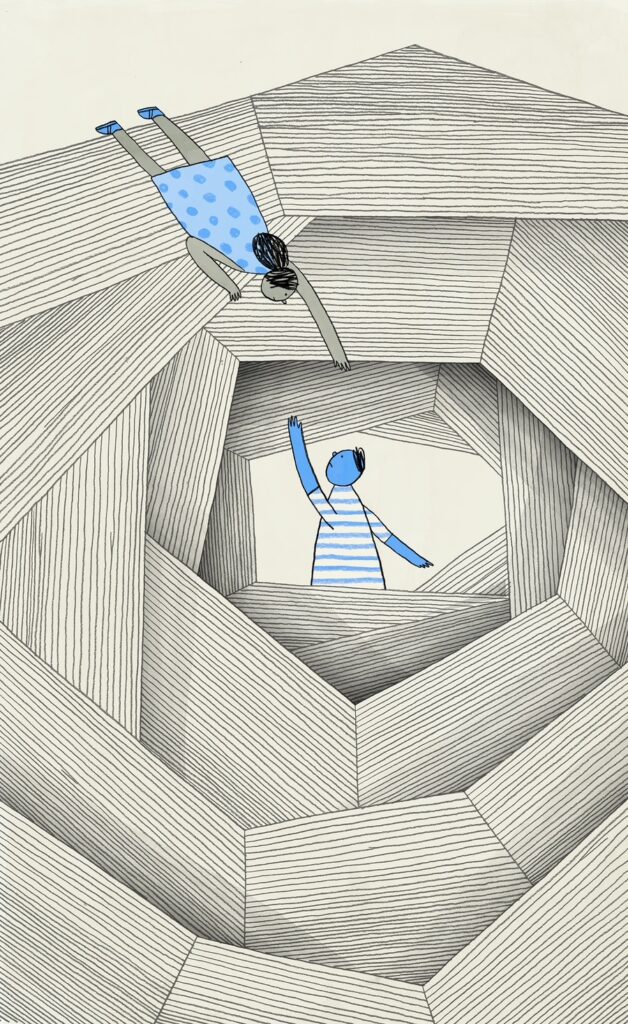
The geometric maze of addictive thinking feels overwhelming because it is neurologically complex. But like the helping hand in the illustration, NYCFL’s data-focused therapies are ready to guide you towards The Way Out. Our comprehensive approach—integrating individual therapy, family involvement, creative modalities, and holistic wellness—offers a complete pathway from cognitive confusion to clarity.
Substance Use doesn’t just affect the body—it constructs intricate mental mazes that trap us in cycles of destructive thinking. A 2023 meta-analysis of 13 studies shows that Substance Use literally rewires brain networks, showing overactivation in regions responsible for self-referential thinking and rumination.
At NYCFL, our clinicians understand that these aren’t character flaws—they’re measurable neurological changes that can be reversed through targeted intervention. Cognitive distortions create false barriers including All-or-Nothing Thinking, Catastrophizing, Mental Filtering, and Personalization.
NYCFL’s group therapy modalities combine the latest neuroscience with compassionate, individualized care that recognizes your unique journey. Our clinicians help you begin to identify the specific triggers that activate destructive thinking, using that to literally rewire brain pathways. Our creative arts therapy, improv workshops, and mindfulness integration provide multiple modalities for practicing new thought patterns. This multi-modal approach ensures skills transfer from therapy sessions to real-world situations.
Brain imaging studies show these changes begin within 8-12 weeks of consistent evidence-based practices.
At NYCFL, you’re not just learning techniques—you’re literally rebuilding your brain’s capacity for healthy thinking. The way out isn’t just about changing thoughts—it’s about transforming your brain’s capacity for hope, connection, and lasting recovery. At NYCFL, that transformation is not just possible—it’s measurable, evidence-based, and uniquely yours.
Contact NYCFL today to learn how our evidence-based programs can illuminate your path to recovery.
- Family Training: We include family members in learning cognitive restructuring techniques, creating a supportive environment that reinforces new thinking patterns at home. Research shows family involvement improves outcomes by 35-40%
- Creative Expression: Our art and music therapy programs provide non-verbal pathways for cognitive change. When words fail, creative expression accesses the same neural networks targeted by traditional therapies, offering alternative routes to cognitive restructuring.
Harm Reduction: Unlike abstinence-only approaches, our programming framework meets you where you are. We address cognitive distortions around “perfect recovery” while supporting incremental progress. Recent NIDA research shows that meaningful reduction in substance use produces significant improvements in depression, craving, and quality of life.